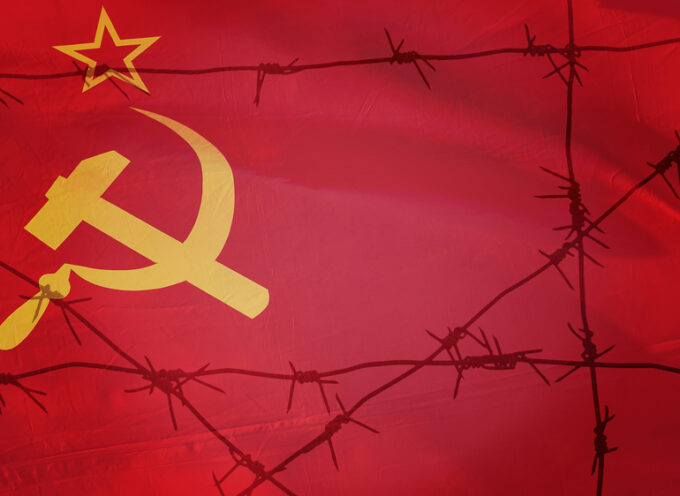There are only three logically consistent options when choosing an ethical framework for understanding matters of war and peace. At one end of the spectrum is pacifism, an ethic that wishes to achieve peace by refusing to take up arms. I reject pacifism as a form of idealism, unsuited for the real world. At the other end of the spectrum is an equally idealistic ethic, known as jihadism, crusaderism, or militarism. Like pacifism, it seeks an ideal peace, but unlike pacifism, it is quite willing to take up arms to achieve that peace.
Jihadism is carried out in the name of some “ultimate” authority, whether the authority is a traditional religion of a modern ideology. Drawing upon their chosen religion or ideology, the jihadi seeks to impose their ideals on all people, using lethal force to coerce or eradicate persons who refuse to submit. This societal ideal is considered “holy,” either literally or figuratively, being located variously in God’s will, the vindication of God’s reputation, God’s kingdom, a social idea, or a prophesied socio-political utopia.
It should be unsurprising, therefore, that jihad is unrestrained. The jihadi must destroy anything or any person who is an obstacle to achieving the ideal. The jihadi ethic is utilitarian; “right” and “wrong” are conceived in terms of whether or not they achieve the prophesied utopia, vindicate God’s name, etc. War is “total war.” It is “all out” with “no holds barred” and “no quarter given.” The jihadi will not have mercy because the enemy is a tool of Satan or a recalcitrant obstacle of the revolution.
Whereas the just war tradition wages war merely to rectify a specific injustice and restore a previous state of order, the jihadi wants to conquer and destroy. The just warrior fights in opposition to an unjust regime but the jihadi fights to overturn the whole social order and value system of the enemy. The just warrior discriminates between combatants and non-combatants but the jihadi does not. The just warrior engages in limited wars but the jihadi wages total war and does so with zeal.
Varieties of Jihad
History reveals many varieties of jihad (or crusade or militarism). In the Bible, we learn that ancient Israel waged wars of crusade, some of which were approved by God and led by God, others of which were opposed by God and condemned by God. For example, we are told that God commanded and led a crusade against the Midianites (Num 31) in which God told Moses and Israel to inflict the Lord’s vengeance on them. Conversely, other biblical passages reveal that God rebuked Israel when it initiated its own crusades. It is important to note that wars of crusade are now off-limits for Christians because God is not commanding and leading such wars.
Unfortunately, certain medieval sects waged wars of crusade during the Middle Ages. They saw themselves as taking vengeance on the Lord’s enemies and strengthening the church. War was not merely political but also religious. Thus the crusaders justified dismembering the bodies of their enemies and committing other war crimes.
From the early middle ages until now, we have seen Islamic wars of jihad. In Islamic theology, “jihad” means exertion. There are many forms of exertion, such as preaching the truths of Islam, but the form of exertion this article examines is military exertion in the name of Allah. For jihadis, the world is divided into Dar-al-Islam (the territory of Islam) and Dar al-harb (the territory of war). Jihad, therefore, is an armed attempt to extend the territory of Islam over the territory of war. Islam’s founder, the Prophet Muhammad, commanded and led wars of jihad. Others of his disciples, such as Osama bin Laden, have likewise led wars of jihad.
In the modern era, we also see jihad in the name of ideologies. During the twentieth century, the Nazis leveraged their ideology of Aryan supremacy to wage a uniquely abhorrent type of crusade against the Jews. The Russian Communist revolutionaries, following Marx, worshiped “material equality” and waged a war of jihad against the bourgeoisie (the capitalist class who had amassed wealth and who controlled the means of production), terminating countless millions of recalcitrant citizens through assassinations and concentration camps. In our contemporary era, Western nations lapse into a jihadi mentality when they engage in utopian talk about “making the world safe for democracy.”
Arguments against Crusade
The fatal flaw of jihadism is its idealism in its attempt to achieve an enduring peace in the here-and-now. Its path toward peace necessarily involves enormous amount of bloodshed, much of which flows from the veins of innocent men and women. Individuals must be coerced into embracing the jihadi’s ideology, or else suffer violence. Inevitably, jihadis fail. People cannot be forced to believe things which they reject in their hearts. Thus, the ideal peace cannot be achieved in the here-and-now.
As I will argue in future posts, the Bible makes clear that God alone may take life outside of the sort of “rules of engagement” demanded by the just war tradition. Examples of God’s stated rules of engagement are commands not to kill women, children, animals, or fruit trees (1:10-15), not to kill non-combatants or use excessive force (Amos 1:3-2:3), and not to try to usher in God’s kingdom through violence (Mt 26:47-56).
But more important than individual texts such as these is the Bible’s overarching storyline, which consistently rules out the sort of idealism that drives jihadism. No amount of warfare will ever rid the world of the evil that pervades every human heart and cuts across every society and culture. No type of Christian crusade, Islamic jihad, Marxist revolution, or military intervention will set the world to rights.
Only Christ will set the world to rights, and only when he returns again in glory. Until then, the justice we seek will have to be limited and approximate. Until then, war must only be waged to rectify specific injustices and restore a previous state of order. Until then, warfighters must discriminate between combatants and non-combatants. Until, then we must remain content with limited justice, peace, and order that can be found in a world filled with finite and fallen humans.
Other articles in the “Ethics of Warfare” Series:
1. To Fight or Not to Fight? That is the Question.
2. What Kind of Peace Should America Seek in our War-Torn Era?
3. Why I am Peaceful but Not a Pacifist
5. Why I am a Proponent of the Just War Tradition
6. The “Founding Fathers” of the Just War Tradition
7. Seven All-Stars of the Just War Tradition
8. Eight Recent Champions of the Just War Tradition
9. 8 Criteria for Deciding When It’s Right to Go to War
10. 7 Moral Criteria to Guide Commanders during Battle
11. How Do Just War Principles Apply to Terrorism & Asymmetrical Warfare?
12. How Do Just War Principles Apply to Drone Warfare?
13. Future War: How do We Prepare Ethically for Radically New Forms of Warfare on the Horizon?
14. The Ethics of Special Operations Warfighting
Subscribe
Never miss a post! Have all new posts delivered straight to your inbox.







